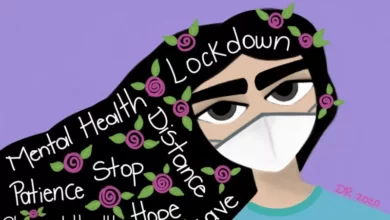Digital Literacy and Its Importance in the 21st Century

Introduction
Technology has revolutionized the way we live, work, and communicate. The world is now more connected than ever, and it has become essential for individuals to possess digital literacy skills to keep up with the rapid changes in the digital landscape. In this article, we will discuss the meaning and importance of digital literacy in the 21st century.
What is Digital Literacy?
Digital literacy encompasses a broad range of skills, including the ability to use digital devices and technologies such as computers, smartphones, and tablets, as well as social media platforms and other digital tools. It involves the ability to access, evaluate, create, and communicate information effectively using digital technologies.
The Importance of Digital Literacy
In today’s digital age, digital literacy has become an essential skill for everyone, regardless of their age, occupation, or location. Here are some reasons why digital literacy is crucial in the 21st century:
Access to Information
The internet has made it possible for us to access vast amounts of information on virtually any topic. Digital literacy skills enable individuals to navigate the web effectively, find relevant information, and assess its credibility.
Communication
Digital technologies have transformed the way we communicate with each other. Digital literacy skills enable individuals to communicate effectively using various digital tools such as email, instant messaging, social media, and video conferencing.
Employment Opportunities
The job market is becoming increasingly digital, and many employers now require digital literacy skills for various positions. Individuals who possess digital literacy skills have a competitive advantage in the job market and are more likely to be successful in their careers.
Social Participation
Digital technologies have also transformed the way we interact with society. Digital literacy skills enable individuals to participate fully in social and civic activities, such as voting, advocacy, and community engagement.
Personal Development
Digital literacy skills enable individuals to learn and develop new skills, pursue their interests, and engage in lifelong learning. It also enhances their creativity and critical thinking skills.
Digital Literacy in Education
Digital literacy is crucial in education as it enables students to access and evaluate information effectively, collaborate with others, and develop essential skills for their future careers. Educational institutions must incorporate digital literacy skills into their curricula to prepare students for the digital world.
Digital Literacy in the Workplace
Digital literacy is essential in the workplace as it enables employees to use digital tools and technologies effectively, collaborate with colleagues, and communicate with clients and customers. Employers must provide training and resources to develop digital literacy skills among their employees.
Digital Literacy in Daily Life
Digital literacy is also crucial in daily life as it enables individuals to access information, communicate with others, and complete various tasks, such as online banking and shopping. It also enhances their safety and security online.
Challenges to Digital Literacy
Despite the numerous benefits of digital literacy, there are also challenges that individuals and society face. Some of these challenges include:
Digital Divide
The digital divide refers to the unequal distribution of access to digital technologies and resources. This divide can prevent individuals from developing digital literacy skills and limit their opportunities in education, employment, and social participation.
Cybersecurity and Privacy
The widespread use of digital technologies has increased the risk of cyber threats such as hacking, identity theft, and data breaches. Digital literacy skills are essential to protect individuals’ privacy and security online.
Information Overload
The vast amount of information available online can be overwhelming and challenging to navigate. Digital literacy skills are necessary to filter out relevant and credible information effectively.
Developing Digital Literacy Skills
Developing digital literacy skills requires a combination of formal education, training, and personal experience. Here are some ways to develop digital literacy skills:
Formal Education
Educational institutions can incorporate digital literacy skills into their curricula to prepare students for the digital world. This includes teaching digital citizenship, online safety, and effective communication using digital tools.
Training and Workshops
Employers can provide training and workshops to develop digital literacy skills among their employees. This includes teaching them how to use digital tools and technologies effectively, collaborate with colleagues, and communicate with clients and customers.
Personal Experience
Individuals can develop digital literacy skills through personal experience by using digital tools and technologies in their daily lives. This includes using social media, online shopping, and online banking, among other activities.



